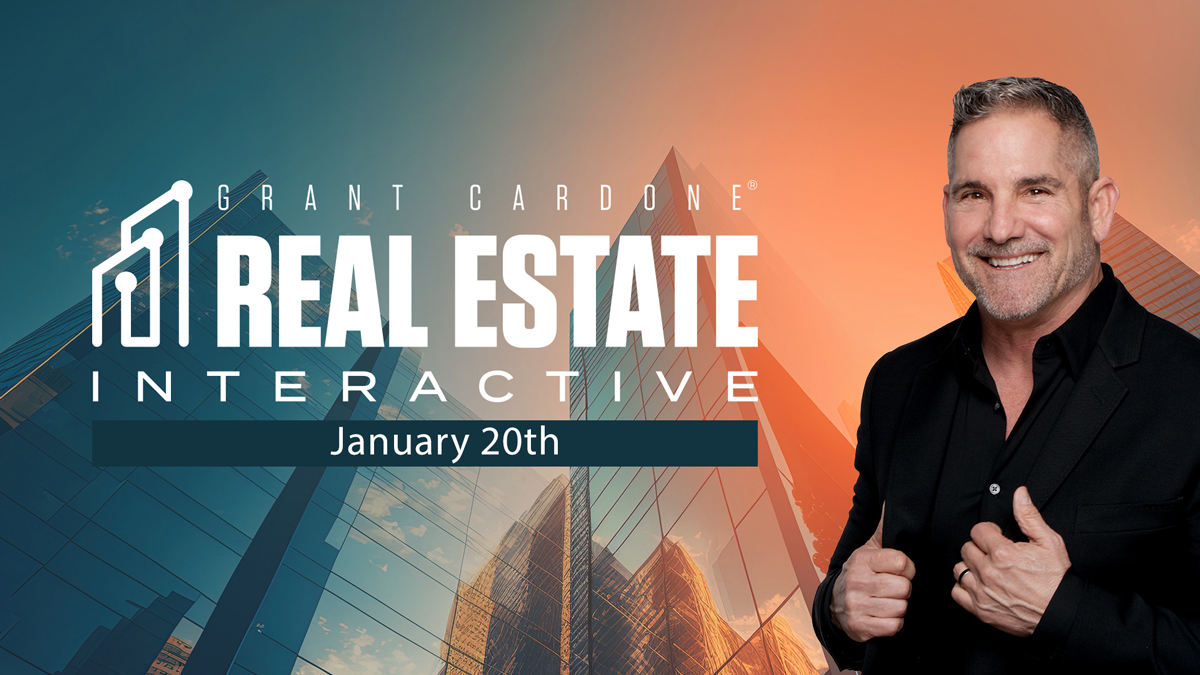Buying Apartments with No Money Down – Sneak Preview
Grant Cardone gives you the 5 best practices for investing in real estate with no money down.
Follow Grant: https://twitter.com/GrantCardone
First let me say that there is really no such thing as no money down because no matter how you cut it this is going to take time and time is money. So whether you take time and work and save money to invest the way I have and then use that money saved for a down payment on an apartment deal or whether you go to a seller and get them to finance your deal or get friends and family to be investors someone is coming up with the money to buy your deal.
Saying that I wish I would have spent more time raising money from others to invest so that I could control properties with Other People’s Money. The way I have bought properties is I get a lender to give me 70-75% of the purchase price and then write a check for the remainder.
The way others would do this is they would get a similar primary loan and then raise the money for the equity (cash down). Then they tell people they did a deal with no money down. I truth they didn’t’ they borrowed the money or took in investors.
Here are the 5 basic ways I see to do deals with no money down.
1. Owner Financing
2. Borrow From A Private Lender For Down Payment
3. Signature Loan
4. Subject To
5. Equity Share Investor
1. Owner Financing. The most common way to buy a property with no money down is to use owner financing. This occurs when the current owner agrees to finance either all or some part of the purchase price, instead of getting the cash now. You’ll be surprised how many people own their properties free and clear, and are willing to finance the entire amount or a good portion of the mortgage. Usually, though, you will be getting secondary financing from the owner. That means you will get the majority of the money (the first mortgage) from another source, like a bank, and the seller will give you the rest in the form of a second mortgage.
There are 3 types of owner financing to that you could ask for:
Type 1
Ask for the principal to be paid at a certain later date.
Type 2
Principal divided into monthly payments. Again no interest; you’re paying off 100% principal. That’s a great deal for you
Type 3
Ask for interest-only payments, with the principal to be paid off with a “balloon” (also called “bullet”) mortgage in 5 years.
In this example, we offer 8% interest on $100,000 of owner financing. Multiply $100,000 by .08 and get $8,000. Divide the $8,000 by 12 and get a monthly payment of $667 per month. You then must pay off the entire principal balance at the end of the fifth year.
You would typically do this by either selling the property or refinancing it.
2. Borrow From A Private Lender For Down Payment. If you’ve got a great deal, but don’t have the money for a down payment, find a private lender.
This is any individual that has extra money set aside that you can use for your purchase. This person can be a family member, friend, dentist, doctor, dry cleaner, a member of your real estate investment club, etc or Hard Money lender
Millions of private investors out there that have money.
After you get one or two lined up and you start to use them successfully, watch what happens:
3. Signature Loan. Take out a signature loan at your local bank for the down payment. Don’t use the same bank that you used for your first mortgage on the property.
4. Subject To — Take over multi-family properties subject to the existing mortgages. This means that the mortgage stays in the current owner’s name, but the deed is transferred to your name. This is a great way to take over a property with no money down. This situation usually arises when the property is not performing and the owner is in trouble with the bank.
5. Equity Share Investor.
This means you will share what equity is created in the property with an investor who will give you the money for a down payment.
For example, an investor gives you 20% of the purchase price to put down on a property. In return for this down payment, the investor will get 20% of the monthly cash flow, and 20% of the profits upon the sale of the property. Additionally, the 20% that is put down will be treated like private money. Private money is a second mortgage on the property.
No matter how you cut it this takes contacting buyers, looking in your market, prospecting and sales skills and lots of motivation…
You have to find the right product – then you need to sell someone on doing this with you.
Sign in
Welcome! Log into your account
Forgot your password? Get help
Password recovery
Recover your password
A password will be e-mailed to you.




























